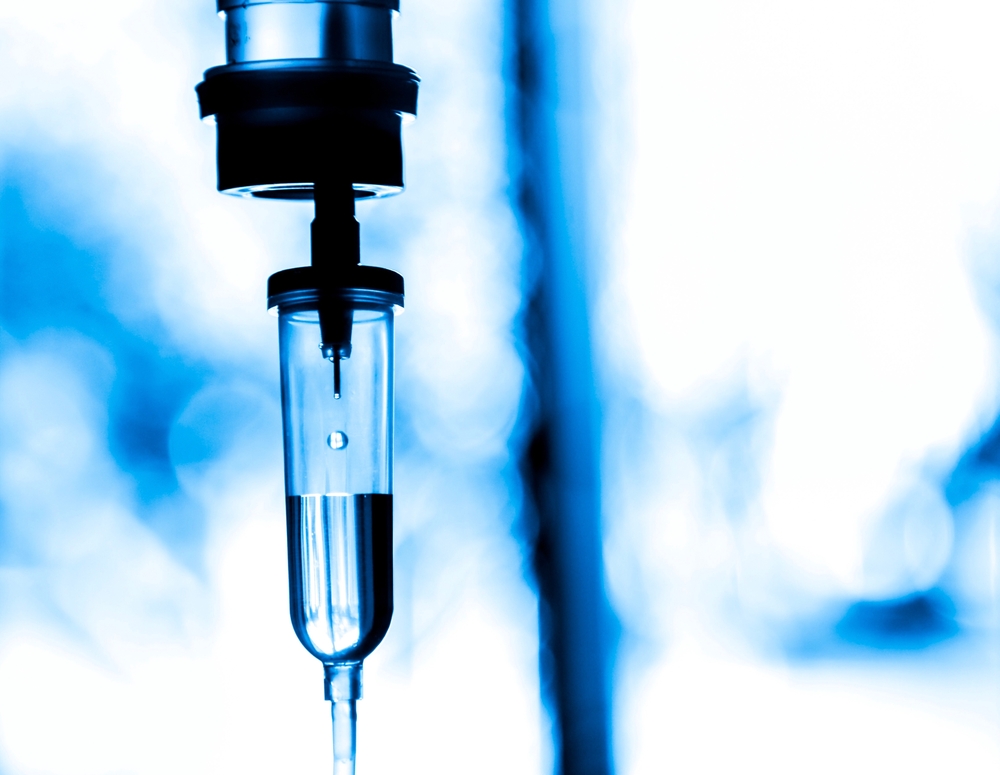#WFH2018 — SPK-9001 Reduces Bleeding Rates by 98% in Hemophilia B Patients, Phase 1/2 Trial Shows

SPK-9001, an investigational gene therapy being developed by Spark Therapeutics and Pfizer, continues to demonstrate great potential to treat hemophilia B patients in an ongoing Phase 1/2 clinical trial.
The latest results showed that the annualized bleeding rates of all treated patients were reduced by 98%. In addition, the treatment significantly increased levels of factor IX — the clotting factor they lack — which allowed patients to discontinue routine infusions of recombinant (lab-made) factor IX concentrates.
Trial data was recently discussed at the World Federation of Hemophilia (WFH) World Congress held in Glasgow, Scotland. The oral presentation was titled “Investigational SPK-9001: Adeno-Associated Virus Mediated Gene Transfer for Hemophilia B – Persistent, Stable Factor IX Activity at One Year Independent of Downstream Purification Method.”
The open-label Phase 1/2 trial (NCT02484092) is being conducted at sites in the U.S., Australia, and Canada.
It initially enrolled 10 adult patients with confirmed hemophilia B who were treated with a single administration of SPK-9001. But in November 2017, the company announced it was going to expand the study to include five more patients who would be treated with an enhanced version of the SPK-9001.
As of May 7, the 15 patients had been treated with SPK-9001 for five to 121 weeks.
Based on each patient’s clinical history before entering the trial, the overall annualized bleeding rate for all participants was reduced by 98% after four weeks of treatment. This represented a reduction from an annual rate of 8.9 bleeds per patient to 0.2 after SPK-9001 therapy. Only one patient experienced a bleeding event after four or more weeks of SPK-9001 infusion.
Following the trend of these positive results, the annualized infusion rate was also reduced by 99% percent for all 15 participants. All treated patients discontinued preventive clotting factor infusions with standard-of-care therapies, changing from a rate of 57.2 infusions per year to 0.9 infusions after SPK-9001 administration.
During the trial, six participants had to receive additional factor IX infusions due to reported spontaneous bleeds, surgery, and for prophylaxis for a minor traumatic non-bleeding event.
Evaluation of factor IX activity in the first 10 patients treated revealed that it increased from less than 2% before the trial to 14.3% at week 12, and to 76.8% at week 52.
The three patients infused with the enhanced SPK-9001 formulation showed improvements ranging between 38.1% and 54.5% at week 12 or more of follow-up. The remaining two patients have not yet reached week 12 upon treatment, which means this assessment is not yet possible.
No serious adverse events have been reported, as well as no thrombotic events or development of factor IX inhibitors. Two participants, one receiving the new enhanced version of the therapy, experienced increased levels of liver enzymes, which were resolved with oral corticosteroids.
“We are pleased to see all 15 participants, notably including the first four participants who have been followed for more than two years, continue to show that a single administration of SPK-9001 has resulted in dramatic reductions in bleeding and factor IX infusions, with no serious adverse events,” Katherine A. High, MD, president and head of research and development at Spark Therapeutics, said in a press release.
“Our commitment to gene therapy research across our hemophilia programs remains steadfast with the goal of developing a novel therapeutic approach with a positive benefit-risk profile that aims to free patients of the need for regular infusions, while eliminating spontaneous bleeding,” she said.
Spark Therapeutics is expecting to pass the SPK-9001 program on to Pfizer this summer, which is going to further develop the therapy for hemophilia B patients. Under the terms of the collaboration agreement established in 2014 and a recent amendment, Pfizer is going to assume responsibility for the SPK-9001 manufacturing process and clinical development, as well as possible requests for regulatory approval and commercialization.
Additionally, Spark Therapeutics is anticipating delivering a batch of SPK-9001 to Pfizer, which will enable the company to begin a Phase 3 clinical trial.
SPK-9001 has received PRIME status from the European Medicines Agency and Breakthrough Therapy Designation from the U.S. Food and Drug Administration, both of which are expected to facilitate and accelerate the development and regulatory review of the therapy.






